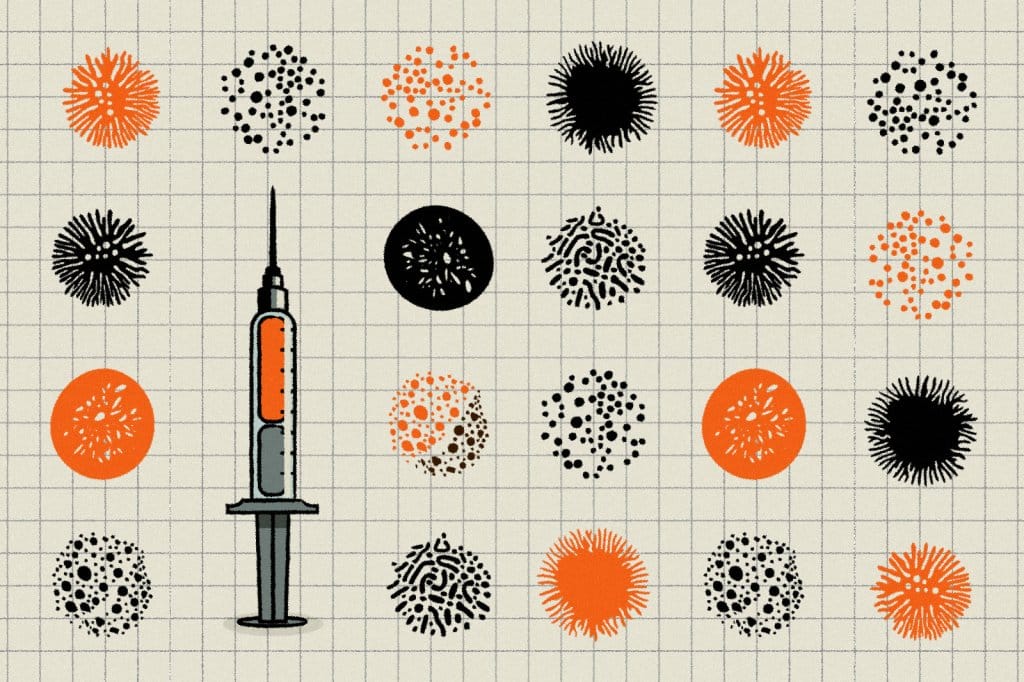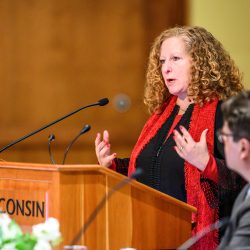
The UW approach could theoretically apply to any cancer that tends to recur, such as pancreatic cancer and glioblastoma. Jaime Espinoza
Using a newly discovered byproduct of dying cancer cells, UW–Madison researchers are developing personalized vaccines that could help keep aggressive tumors from recurring.
Led by Quanyin Hu, an assistant professor in the UW–Madison School of Pharmacy, the research team has already found success slowing the recurrence of tumors in mouse models of triple negative breast cancer and melanoma. Currently, the long-term prognosis for human patients with these cancers is relatively poor. That’s in part because the diseases have a tendency to recur after the initial treatments to remove the tumors.
The personalized vaccine approach is an extension of the team’s recent discovery of pyroptotic vesicles, which are tiny sacs filled with the remnants of cancer cells when they undergo programmed cell death. Crucially, the remnants in these microscopic sacs include antigens specific to the tumor, along with other molecular bits that can help direct immune cells to find and suppress cancer cells that might remain after a tumor is surgically removed.
Hu and his colleagues engineered these sacs to carry an immune stimulating drug. They then embedded the engineered vesicles into a hydrogel that can be implanted into the space left behind after surgical removal of a tumor.
“Compared to the other approaches, ours shows a much stronger immune response,” says Hu. He notes that the approach could theoretically apply to any cancer that tends to recur, such as pancreatic cancer and glioblastoma.
Several of the mice that received the highest doses of the experimental treatment remained cancer-free throughout the course of the study.
“That’s really exciting,” Hu says, “because we demonstrated that we could essentially cure these mice with no tumor recurrence.”
Published in the Winter 2025 issue



Comments
No comments posted yet.